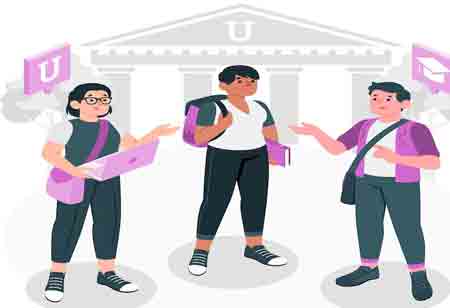THANK YOU FOR SUBSCRIBING
Be first to read the latest tech news, Industry Leader's Insights, and CIO interviews of medium and large enterprises exclusively from Education Technology Insights
Unlocking Potential: The Importance of Student Engagement
Educators can empower students to thrive academically, socially, and emotionally, preparing them for success in an ever-changing world.

By
Education Technology Insights | Monday, February 24, 2025
Stay ahead of the industry with exclusive feature stories on the top companies, expert insights and the latest news delivered straight to your inbox. Subscribe today.
Educators can empower students to thrive academically, socially, and emotionally, preparing them for success in an ever-changing world.
FREMONT, CA: Fostering student involvement and success has become a priority for educators and institutions. Recognizing and reacting to emerging trends is crucial for addressing students' different needs and preparing them for the challenges of the twenty-first century. In terms of education, one-size-fits-all does not apply. Personalized learning approaches tailor training to each student's specific requirements, preferences, and learning styles. Technology allows personalized learning experiences, allowing instructors to provide adaptive content, evaluations, and feedback. Personalized learning provides deeper knowledge, stronger motivation, and improved retention rates by tailoring to each student's individual strengths and challenges.
Blending traditional face-to-face instruction with online learning components offers flexibility and accessibility while maintaining the benefits of in-person interaction. Blended learning models utilize digital tools and resources to expand learning beyond the classroom, enabling students to interact with content at their speed and collaborate with peers in virtual settings. The hybrid approach accommodates diverse learning preferences and schedules, fostering a more inclusive and dynamic educational experience. Passive learning methods, like lectures and rote memorization, are replaced by active learning strategies promoting student participation, critical thinking, and problem-solving skills.
Flipped classrooms, group discussions, project-based learning, and hands-on activities encourage students to actively construct knowledge, apply concepts to real-world scenarios, and collaborate with their peers. By shifting the focus from information dissemination to active engagement, educators empower students to become self-directed learners and lifelong achievers. Academic success is intrinsically linked to social and emotional well-being. SEL programs cultivate essential skills such as self-awareness, empathy, resilience, and responsible decision-making, which are critical for academic achievement and personal growth. Integrating SEL into the curriculum promotes a positive school climate, enhances student relationships, reduces behavioral issues, and improves overall academic performance.
SEL fosters a supportive learning environment where all learners can thrive. Data analytics and assessment tools provide valuable insights into student learning patterns, progress, and areas for improvement. Educators can identify individual learning gaps by collecting and analyzing student data, track growth trajectories, and tailor instructional interventions accordingly. Real-time feedback mechanisms enable timely interventions and adjustments, empowering educators to personalize instruction, scaffold learning experiences, and optimize student outcomes. Data-informed instruction fosters a culture of continuous improvement, where evidence-based practices drive instructional decisions and student success.
As education evolves in response to technological advancements, societal shifts, and pedagogical innovations, staying attuned to emerging trends shaping student engagement and success is imperative. Personalized learning, blended environments, active learning strategies, social and emotional learning, and data-informed instruction are vital trends reshaping the educational landscape.







